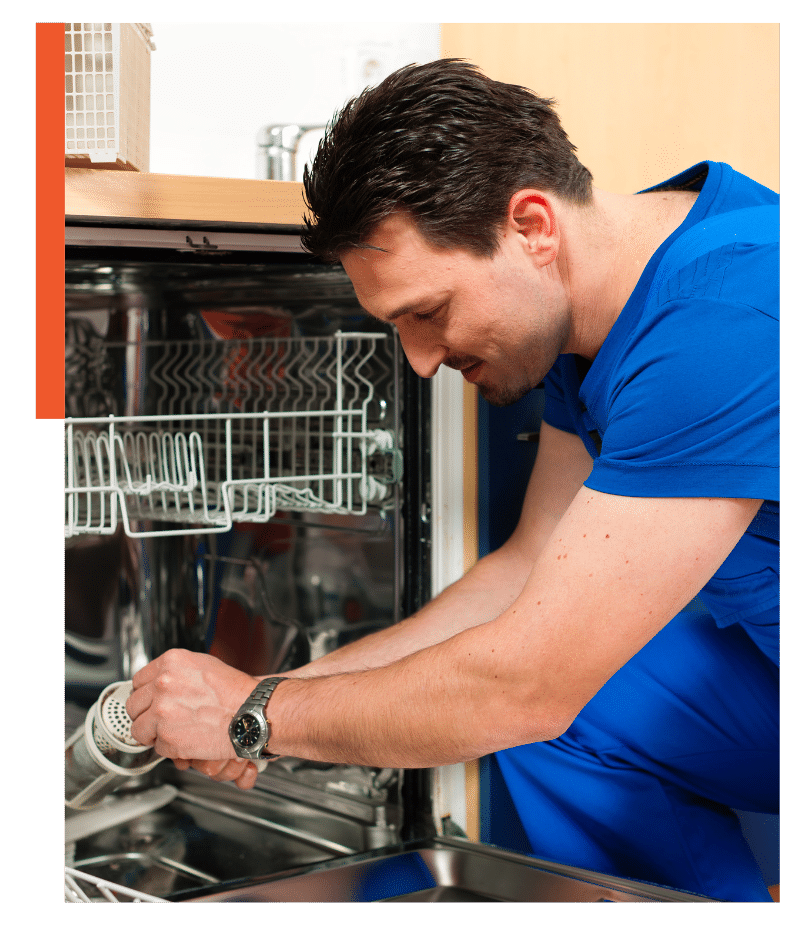A commercial dishwasher is a vital piece of equipment in any restaurant or food service operation. It’s responsible for keeping your dishes, utensils, and cookware clean and sanitized, ensuring that your kitchen runs efficiently. But just like any other piece of machinery, commercial dishwashers require regular maintenance to function properly and last longer. Neglecting maintenance can lead to poor performance, costly repairs, and even equipment failure. Here’s a guide for restaurant owners on how to maintain your commercial dishwasher to keep it in top condition.
Clean the Exterior Regularly
The exterior of your dishwasher can collect grease, food particles, and grime over time. While this may not affect its performance directly, keeping it clean helps maintain a professional kitchen environment and prevents buildup that can cause issues later on.
To clean the exterior:
- Use a mild detergent or cleaner designed for commercial kitchen equipment.
- Wipe down all surfaces, including doors, handles, and buttons.
- Pay attention to any areas where grease or food particles may gather, such as around the door seals.

Clean the Interior Daily
The interior of your commercial dishwasher is where the real cleaning action happens, so it’s essential to keep it free from food debris, soap buildup, and mineral deposits. Daily interior cleaning can prevent clogs and ensure optimal performance.
Here’s how to clean the inside of your dishwasher:
- Spray Arms: Remove the spray arms and rinse them under warm water. Check for any clogs in the nozzles or holes, which can disrupt the spray pattern and reduce cleaning effectiveness.
- Filters: Check and clean the dishwasher’s filters regularly. These can get clogged with food particles, leading to poor drainage and a reduction in cleaning power. Clean them thoroughly using warm water and mild detergent.
- Interior Walls: Wipe down the interior walls with a damp cloth or sponge to remove soap scum, grease, and residue. Be sure to reach every corner and crevice.
Check the Water Temperature
Commercial dishwashers rely on high temperatures to sanitize dishes, and the water temperature needs to be within a specific range to effectively kill bacteria and germs. Most dishwashers require a final rinse temperature of around 180°F (82°C).
To check the water temperature:
- Use a thermometer to measure the temperature during the final rinse cycle.
- If the water isn’t hot enough, check the dishwasher’s heating element or consult a professional technician for adjustments.
- Maintaining the proper water temperature is crucial not only for sanitation but also for improving the dishwasher’s efficiency.

Inspect the Door Seals
The door seals on your commercial dishwasher play a crucial role in keeping water inside the machine during the wash cycle. If these seals are cracked or damaged, water can leak out, leading to potential water damage in your kitchen and a less efficient wash cycle.
To maintain the seals:
- Inspect the door seals regularly for signs of wear and tear.
- Clean the seals with a mild detergent and a soft cloth to prevent buildup.
- Replace any damaged seals immediately to avoid leaks.
Descale Your Dishwasher
Over time, minerals in your water supply can build up inside your dishwasher, leading to scale deposits that can clog pipes and reduce cleaning efficiency. Regular descaling is essential to keep your dishwasher running smoothly, especially in areas with hard water.
To descale:
- Purchase a commercial dishwasher descaler or use a mixture of vinegar and water (follow the manufacturer’s recommendations).
- Run the dishwasher on a hot cycle with the descaler inside to remove scale and mineral buildup.
- For heavy buildup, you may need to perform this task more frequently.

Schedule Regular Professional Maintenance
Even with regular cleaning and maintenance, your dishwasher will benefit from a professional service at least once or twice a year. A qualified technician can inspect and service all critical components, including the motor, pump, spray arms, and electrical systems.
Regular professional maintenance can help identify potential issues before they become major problems, saving you money in the long run. It can also extend the lifespan of your dishwasher and keep it running efficiently.
Conclusion
Regular maintenance is essential to ensure that your commercial dishwasher continues to perform at its best, preventing costly breakdowns and extending its lifespan. By following these simple maintenance tips—cleaning the interior and exterior, checking the water temperature, inspecting seals, descaling, and scheduling professional service—you can keep your dishwasher running smoothly and your kitchen operations efficient. Remember, a little attention to maintenance now can save you a lot of time and money in the future.

